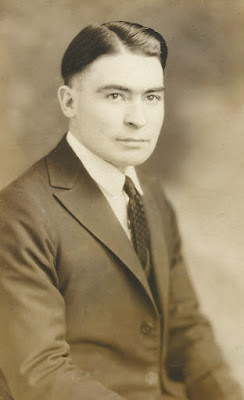When my mother’s father, Chet, was a young man courting my grandmother, Thora, he became very ill, and it was discovered he had contracted polio. This was in the 1920s, decades before the development of the polio vaccine, and a diagnosis of this disease was terrifying. Among its victims who survived, a high percentage were left crippled for life. Chet wrote a letter to Thora from his hospital bed, telling her to forget about him and find someone else. According to grandpa, as soon as Thora got the letter, she rushed to the hospital, threw her arms around him, and told him there was no other man for her. They were later married and had three children. Chet supported his family by farming. But his bout with polio did not leave him unscathed. From the time he left the hospital to the end of his life he wore metal braces on his legs and was only able to walk with the help of canes. ...








